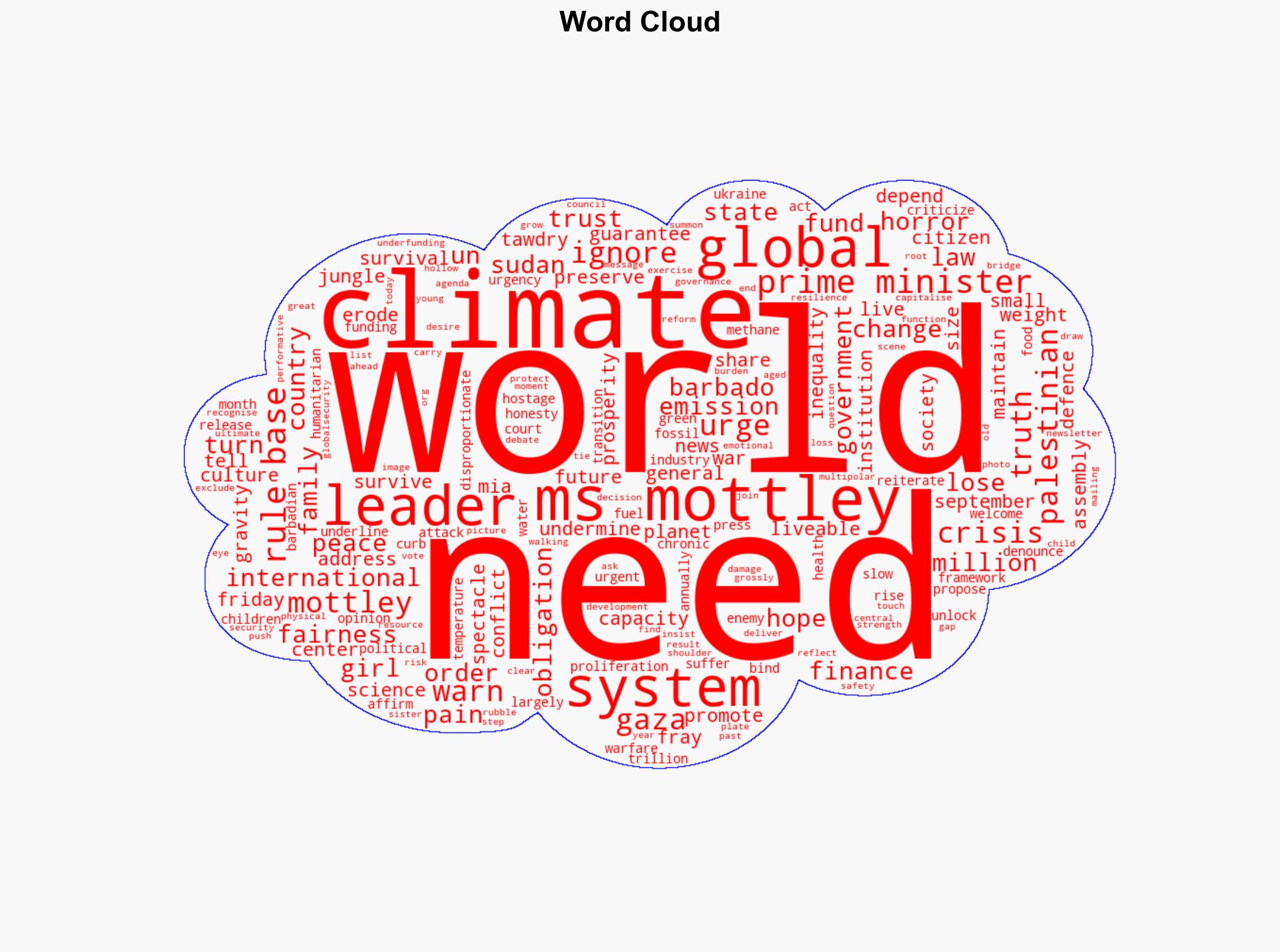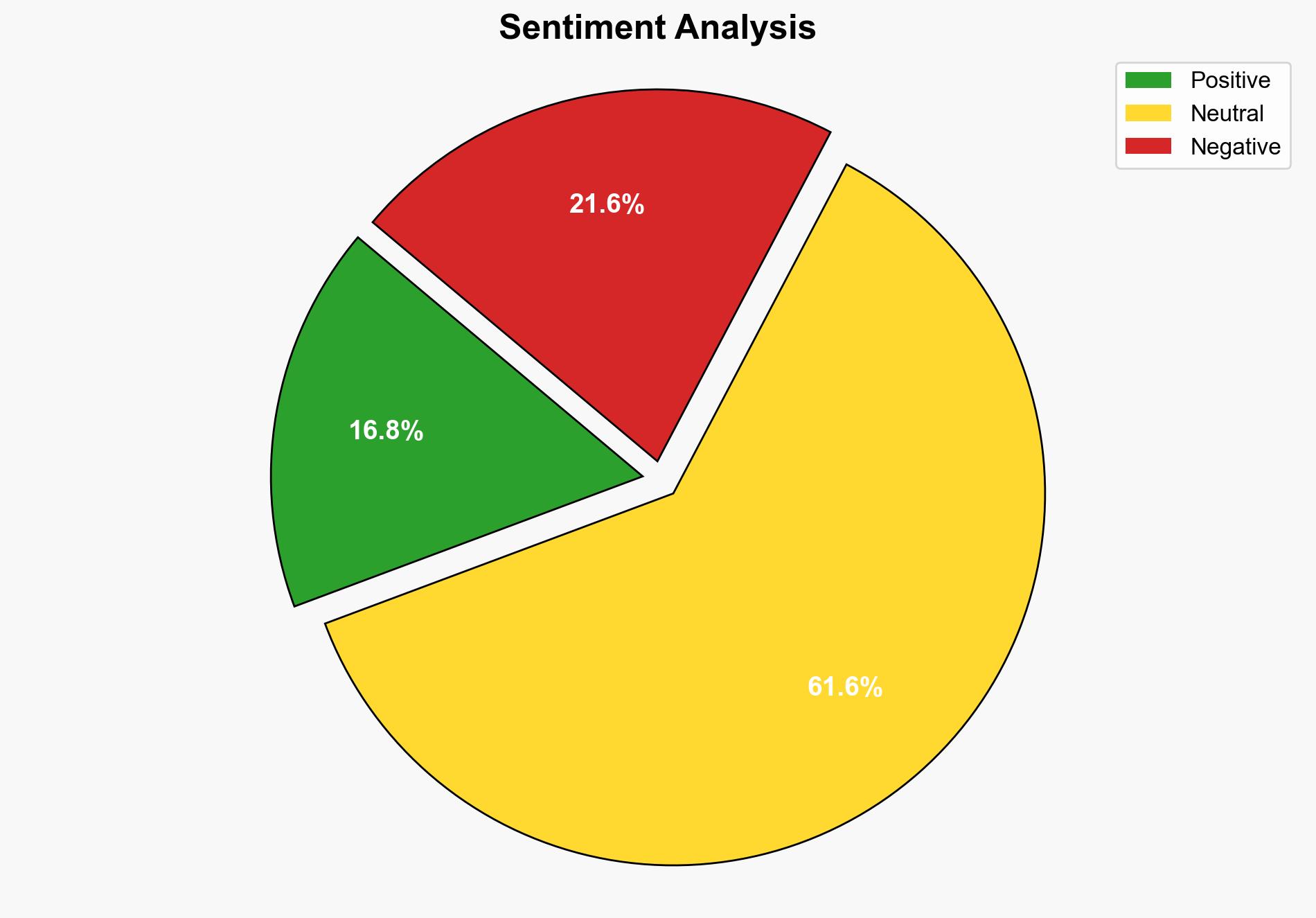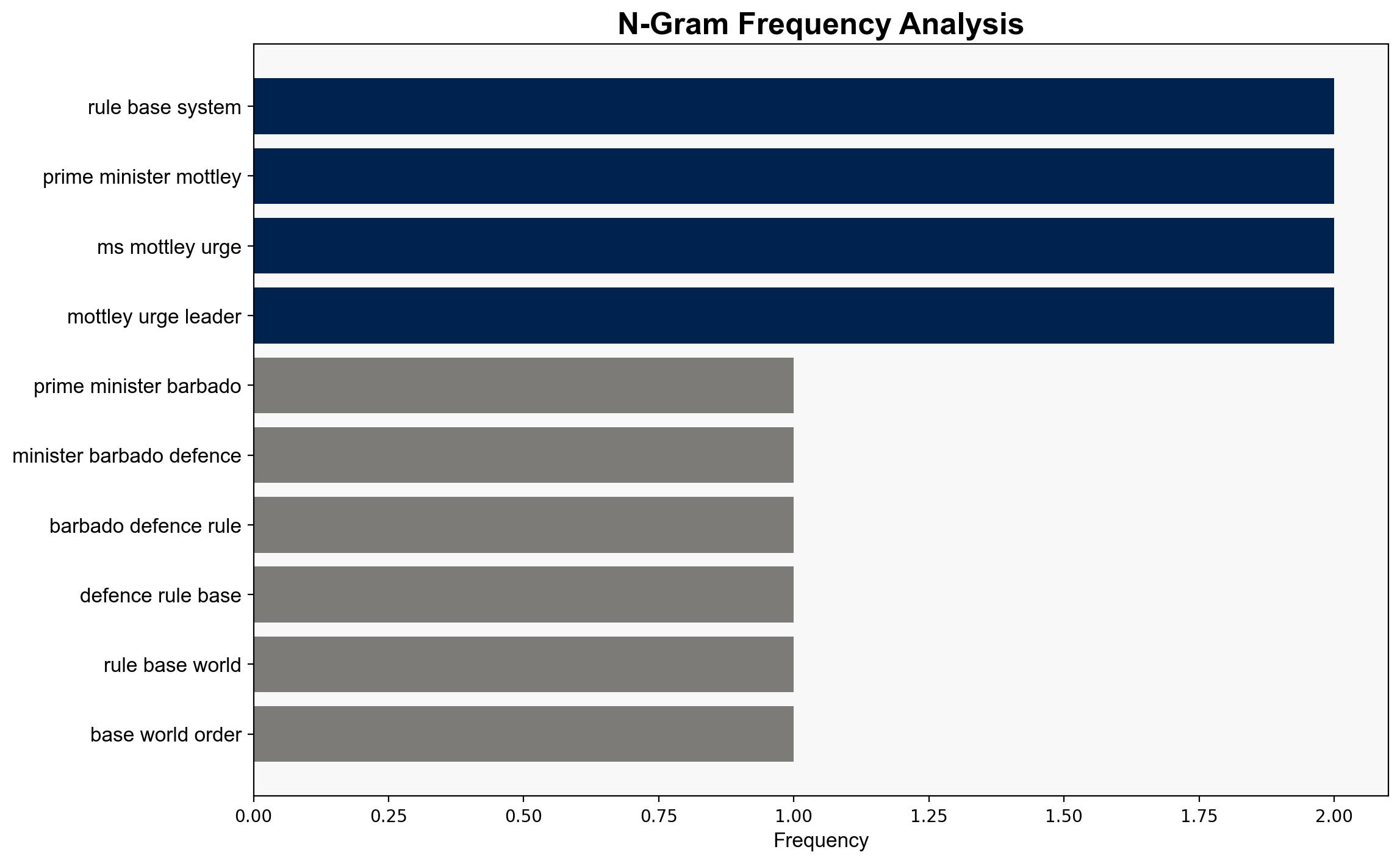Prime Minister of Barbados calls for defence of rules-based world order – Globalsecurity.org
Published on: 2025-09-29
Intelligence Report: Prime Minister of Barbados calls for defence of rules-based world order – Globalsecurity.org
1. BLUF (Bottom Line Up Front)
The most supported hypothesis is that Prime Minister Mia Mottley’s call for defending a rules-based world order is primarily aimed at addressing global systemic challenges such as climate change, geopolitical instability, and economic inequality. This aligns with Barbados’s strategic interests in securing international support and resources to mitigate these issues. Confidence level: Moderate. Recommended action: Engage in multilateral diplomacy to strengthen international frameworks that support small states and address global challenges.
2. Competing Hypotheses
1. **Hypothesis A**: Prime Minister Mottley’s speech is a strategic move to rally international support for small states like Barbados, emphasizing the need for a rules-based order to address global challenges such as climate change and geopolitical instability.
2. **Hypothesis B**: The speech is primarily a diplomatic maneuver to position Barbados as a moral leader on the global stage, using the platform to highlight international issues and garner political capital without expecting immediate tangible outcomes.
Using ACH 2.0, Hypothesis A is better supported due to Mottley’s specific calls for action on climate finance and international reform, which align with Barbados’s strategic needs.
3. Key Assumptions and Red Flags
– **Assumptions**: It is assumed that the international community is receptive to calls for reform and increased climate action. Another assumption is that small states can influence larger geopolitical dynamics through moral leadership.
– **Red Flags**: Potential overestimation of Barbados’s influence in global governance. Lack of immediate response from major powers could indicate limited impact.
– **Blind Spots**: The speech does not address potential resistance from major emitters or geopolitical actors who may oppose reforms.
4. Implications and Strategic Risks
– **Geopolitical**: Failure to secure international cooperation could exacerbate vulnerabilities for small states, increasing geopolitical instability.
– **Economic**: Insufficient climate finance could hinder economic resilience and development in Barbados and similar nations.
– **Psychological**: Continued inaction may lead to disillusionment among global citizens, eroding trust in international institutions.
5. Recommendations and Outlook
- Engage with regional and international partners to build coalitions that support climate action and reform of international institutions.
- Scenario Projections:
- Best Case: Increased international cooperation leads to effective climate action and strengthened global governance.
- Worst Case: Continued geopolitical fragmentation and inadequate climate response exacerbate global instability.
- Most Likely: Incremental progress with some reforms and climate initiatives, but significant challenges remain.
6. Key Individuals and Entities
– Mia Mottley
7. Thematic Tags
national security threats, climate change, global governance, international diplomacy





